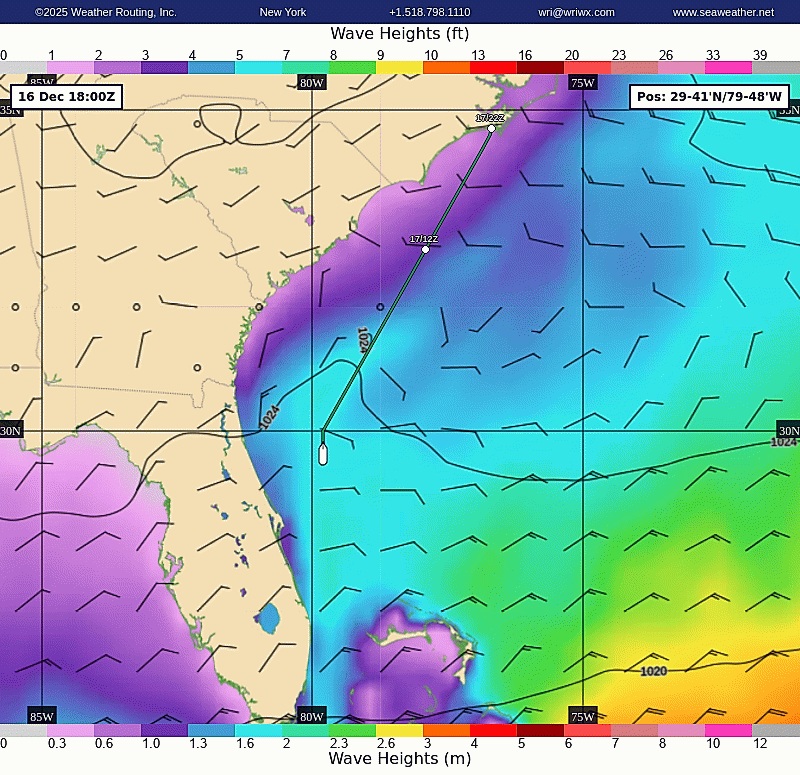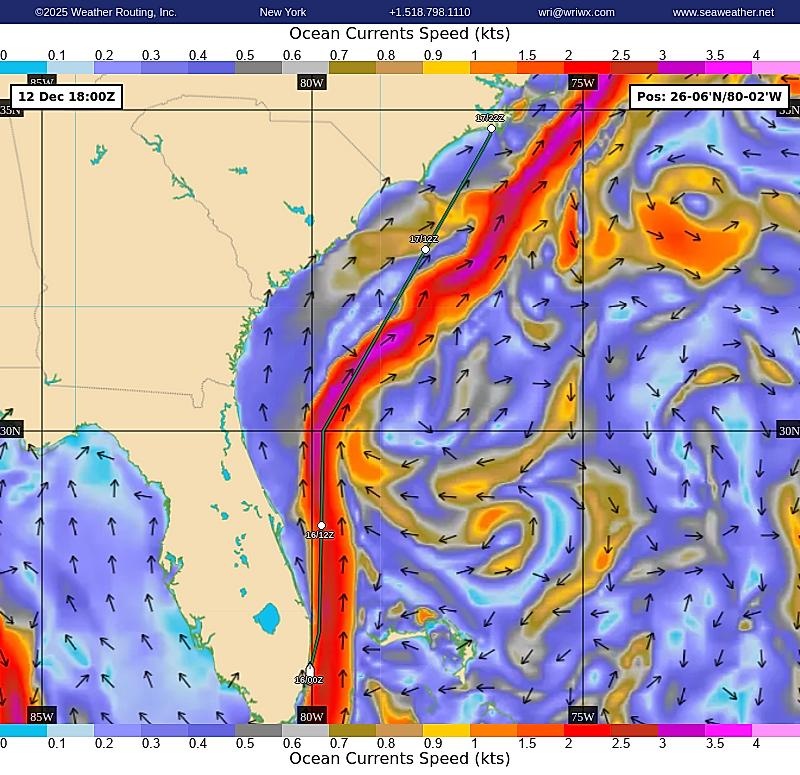New Upgraded Forecast Maps Available
David Cannon, Director of Operations
We at WRI are proud to announce the launch of our newly upgraded maps that are provided with our customized route and forecast updates. These provide a sleeker, crisp, and modernized look for our customers, in an easy to understand format. These upgrades include maps of:
- Forecasted Winds and Seas
- Currents
- Fishing Charts (Altimetry, Chlorophyll Concentration, and Salinity)
Maps of currents now show the vessel's recommended route overlaid on the map for easier reference, and explanation of route reasoning as it pertained to current directions and speed.
We believe that you will find these maps to serve as a useful upgrade, and invite you to contact us today to learn more.


WRI's new weather and oceanographic maps provide one more example of a modernized, and extra "cutting edge" look for our clients.